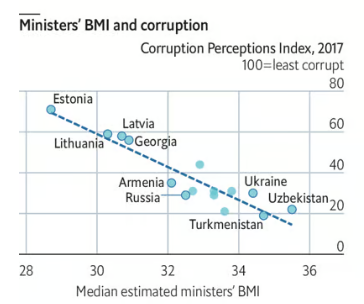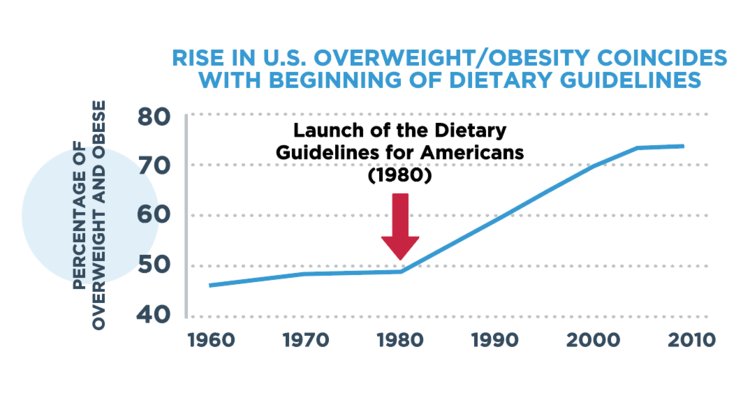No, Virginia, correlation does not necessarily signify causation
On Thursdays I like posting things I want everyone to enjoy.
This one, I stole from Tamar Haspel, who writes about food for the Washington Post.
I follow her on X (the site formerly known as Twitter), where she recently posted:
This could be my all-time favorite BMI correlation!
In China and post-Soviet states, BMI correlates with corruption. The fatter, the crookeder.
The correlation she cites is from an article in the Economist, Are Overweight Politicians Less Trustworthy?

I agree. This is a fabulous example of how correlation does NOT mean causation—a basic tenet of epidemiology often forgotten.
But here’s my personal favorite example. I laugh every time I see it.
No, the Dietary Guidelines did not cause the prevalence of obesity to rise.
This is correlation, NOT causation.
For causes, please consider food overproduction, pressures on food companies to sell food when there is so much of it, and the shareholder value movement, which demands not only profits, but continual growth in profits. All of these forced food companies to find new ways to get everyone to eat more food (by creating an “eat more” food environment. I discuss all this in Food Politics and my other books).
Correlation is lots of fun but causation requires much deeper analyses.
Sorry about that.
Thanks Tamar.


